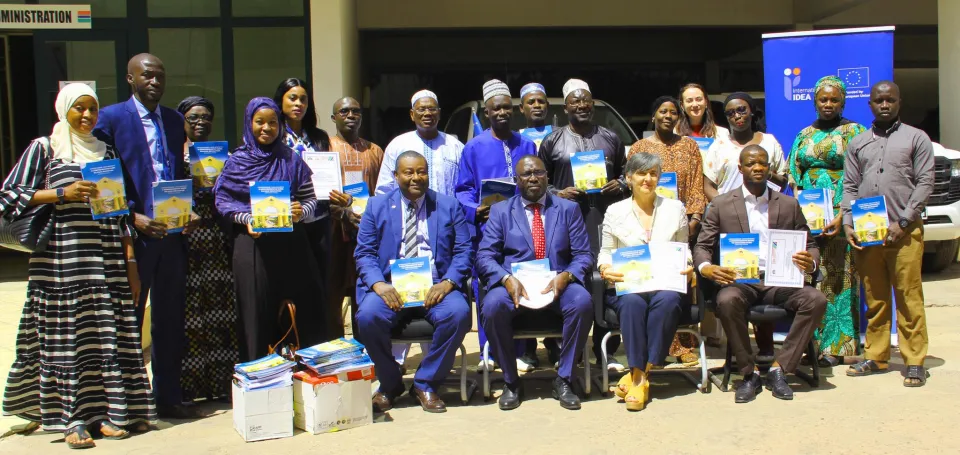One of the most outstanding aspects of the general elections held recently in Bolivia is that the Plurinational Legislative Assembly will have 81 female representatives, equivalent to 48 per cent of the total composition of the Assembly (166 members). In the Upper Chamber, 16 of the 36 members will be women (44 per cent) and in the Lower Chamber 65 of the 130 (50 per cent)1.
This is a leap forward in the history of Bolivia’s Parliament, following a long struggle of womens’ organizations promoting equal opportunities for men and women in the democratic constitution of public power and in decision-making related to the common good.
The movement against the dominant patriarchal and machista forms of organization and operations in Bolivian society has achieved some remarkable milestones such as the “Quota Law” passed in March 1997 which established an obligation for political parties to include at least 30 per cent women candidates for elective posts. The Political Parties Act (1999) states the same principle of affirmative action on Article 19, paragraph 4 “…the parties shall establish a quota of at least thirty percent women on all the party’s decision-making levels and as regards the candidates for representative office.”
This “Quota Law” is the result of tough negotiations and pressure, and has encouraged a greater presence/participation of women in the political setting, despite strong resistance from their male counterparts–particularly on leadership levels-who saw this as a threat for the exclusivity they had enjoyed for a long time.
This resistance was most prominent in the manipulation of the lists of candidates, in which women were systematically designated as deputies, or in being assigned to the electoral districts and positions where it was less probable for them to be elected.
Another important milestone is approval of the new Constitution where gender equity is one of the fundamental values of the State (Art. 8, paragraph II). It expressly states that in the election of representatives to the Plurinational Legislative Assembly “the equal participation of men and women will be ensured.” This mandate has been further specified in the election laws in effect.
The Law against Political Violence and Harassment against Women (2012) is another important step forward in the legislation aimed at ensuring that women can fully exercise their political rights.
A qualitatively significant element of women’s participation in the general elections of 12 October 2014 came in the form of the process in preparing a “Political Agenda from Women”. This was to a greater or lesser extent, incorporated in the government programmes of the five political forces that have participated in the election process.
The agenda has the following five fundamental axes:
- Democratization of power and political participation of women.
- Cultural, symbolic and material disassembly of the patriarchate and a new institutionality for women.
- Guarantees and conditions for exercising the right to a life without violence.
- Autonomy and self-determination of women’s bodies: acknowledgment and conditions for exercising sexual rights and reproductive rights.
- Economic autonomy of women, equal access to resources, income, employment, opportunities, recognition of their economic contribution and revaluation of care and domestic work.
The agenda presents an excellent instrument for articulation and for women to achieve greater influence in all public decision-making and deliberation spaces, particularly in the Plurinational Legislative Assembly, as well as the regional legislative assemblies and in the municipal councils due to be renewed in March 2015.
During the election campaign, there have been public forums with the men and women candidates for the Upper and Lower chambers where it was possible to establish explicit commitments regarding implementation of the agenda.
The presence of women may generate the necessary and deep changes in the operating logic of the legislative body on all levels. It would re-install the pluralist debate around the neuralgic topics of social life and refresh the gender perspective in all political, institutional, cultural, economic, public and private spaces.
The challenges which lay ahead are succinctly highlighted by the executive secretary of the Coordinadora de la Mujer—a network of organizations that work for the rights of women. “The new women legislators will have the important task of demonstrating that women’s presence is not a quantitative, esthetic or merely demographic change, but that this can transform the political culture and institutionality and further deepen democracy in our country.”2
Since the past elections, Bolivia has emerged as one of the three countries in the world with the greatest female presence in the Legislative Branch. This represents a true achievement in the complex process of the depatriarchalization of humanity, an indispensable condition to make progress in the construction of fair and equal societies, unequivocally.
1 Data at 99.82% of the final vote count.
2 www.la-razon.com 26.10.14 Offprint Animal POLÍTICO Page E3



